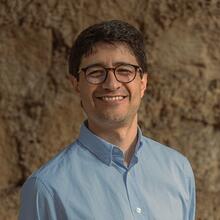“Democratic Transpositions in Latin America: Avoiding Colonization, Embracing Deliberative Innovation,” Felipe Rey, Pontificia Universidad Javeriana

ISPS DEMOCRATIC INNOVATIONS - SPECIAL EVENT
Please join us for a breakfast talk with Felipe Rey hosted by the Democratic Innovations Program at ISPS. He will be presenting a paper on “democratic transpositions” coauthored with Indira Latorre from Universidad del Rosario. PLEASE RSVP AT THIS LINK by Monday, September 9.
Abstract: In the process of transposing deliberative institutions, we argue that Latin America should avoid democratic colonization and instead embrace deliberative innovation. This paper delves into four cases that highlight the deliberative wave in Latin America: The Itinerant Citizens’ Assembly of Bogotá (ICA) in Colombia, the Citizens’ Jury on Anticorruption Policy in the state of Chihuahua, Mexico, the Decidadanía mini-publics in Brazil, and the Lxs 400 deliberative poll in Chile. Our analysis reveals that these cases exhibit evidence of three normative attributes associated with deliberative innovation: receptivity, generativity, and sensitivity. By virtue of these attributes, deliberative democracy and democratic innovation worldwide can learn from the democratic innovations currently occurring in the region.
Felipe Rey is an assistant professor in the Department of Public Law at Pontificia Universidad Javeriana in Bogotá, Colombia. He holds a Ph.D. in Law (2019) and an LL.M. (2013) from Pompeu Fabra University in Barcelona, Spain. He has also been a visiting researcher at the Center for Human Values at Princeton University.
As the Co-Lead of Democracy R&D, the leading global network dedicated to deliberative democracy and democratic innovation, Felipe collaborates with over 300 academics, practitioners, civil servants, and journalists across 55 countries. He is also the founder of the democratic innovation laboratory ideemos.org, recognized by the Apolitical Foundation as one of the two Democratic Innovation Organizations to Watch in Latin America. Through ideemos.org, Felipe has coordinated some of the first deliberations in Latin America using random citizen selection.